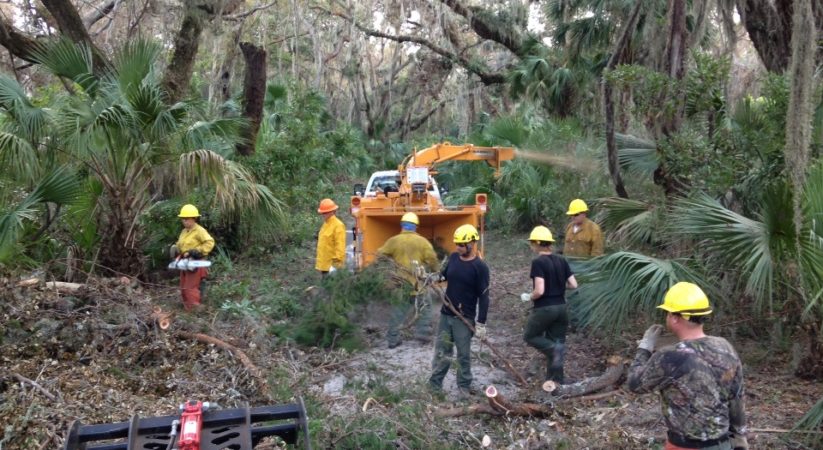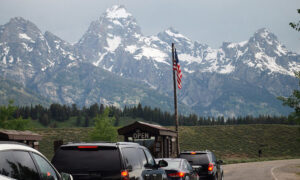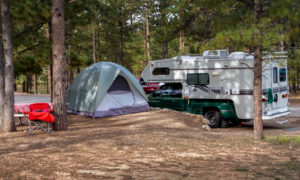
Hurricane Irma mangled Florida national and state parks, turning places meant to be enjoyed into disaster zones that could take weeks or longer to reopen.
“The damage assessments I’m seeing are really pretty sobering,” South Florida National Parks Trust Director Don Finefrock said. “It’s going to take a huge lift not just to reopen but to recover.”
At Big Cypress National Preserve in eastern Collier County, crews have been clearing downed trees along Turner River Road, which had water too high to access for more than a week after the storm, Park Service Ranger Brett Everitt said.
Downed trees have made the preserve’s Bear Island campgrounds inaccessible and high water has shut down unpaved stretches of Loop Road, said Everitt, who is helping with Irma cleanup on loan from Gulf Islands National Seashore in Pensacola.
There is no timeframe for reopening Big Cypress, but the park service reported a big step in that direction Friday (Sept. 22) with the restoration of power in Ochopee and the water plant coming back online.
The preserve’s backcountry trails and campgrounds remain closed; hunting won’t be allowed until the park service and the Florida Fish and Wildlife Conservation Commission agree that it can be done safely. Rangers are patrolling the preserve.
Another southwest Florida natural gem, the Gulf Coast Visitor Center at the Everglades City entrance to Everglades National Park, could be closed for months with the winter tourist season on its way, Everitt said.
Everglades City, which was devastated by a 10-foot storm surge that has left two-thirds of the town’s homes uninhabitable, serves as a popular point to access the Ten Thousand Islands and the park’s Wilderness Waterway.
Other Florida National and State Parks
Other Florida national parks that either closed or partially closed after Irma include Biscayne National Park and Dry Tortugas National Park. De Soto National Memorial, south of Tampa, reopened Friday.
Florida’s state parks also took a heavy hit from Irma; almost 140 state parks were closed after the storm. All but 31 of those parks have reopened.
In Collier and Lee counties, closed state parks include Collier-Seminole, Delnor-Wiggins, Fakahatchee Strand Preserve, Lovers Key and Koreshan State Historic Site.
“The way things were looking, I didn’t think there’d be anything when I came back,” Lovers Key Ranger Robert Steiger said last week as he toured the damage.
A skeleton crew cleared most of the park’s roads of debris; a contractor was expected to begin picking it up Friday. Steiger said the park could be closed for at least two weeks.
The park’s towering sea grapes saw the worst of the storm, many of them snapping: “They’re big and old, and now they’re beat up,” Steiger said.
Besides downed trees, the park’s beach bathrooms sustained roof damage and collapsed ceilings from Irma.
Storm surges took out a walking trail and buried parts of the tram station, and a park grill in sand pushed across the barrier island.
Fallen trees were a hallmark of Irma’s wrath, but at the Naples Preserve, the storm toppled a one-of-a-kind oak tree snapping the trunk of the preserve’s champion myrtle oak tree, certified as the nation’s largest at 41 feet tall and 70 inches around, volunteer Ron Echols said.
To read more on this story click here.
Current information about Florida National and State Parks
The Florida Parks Service is working to quickly and safely reopen parks. Check this page for latest information.
For current information about National Parks in Florida follow this link then click the ‘Alerts & Conditions’ link for the particular park you want to know about.







